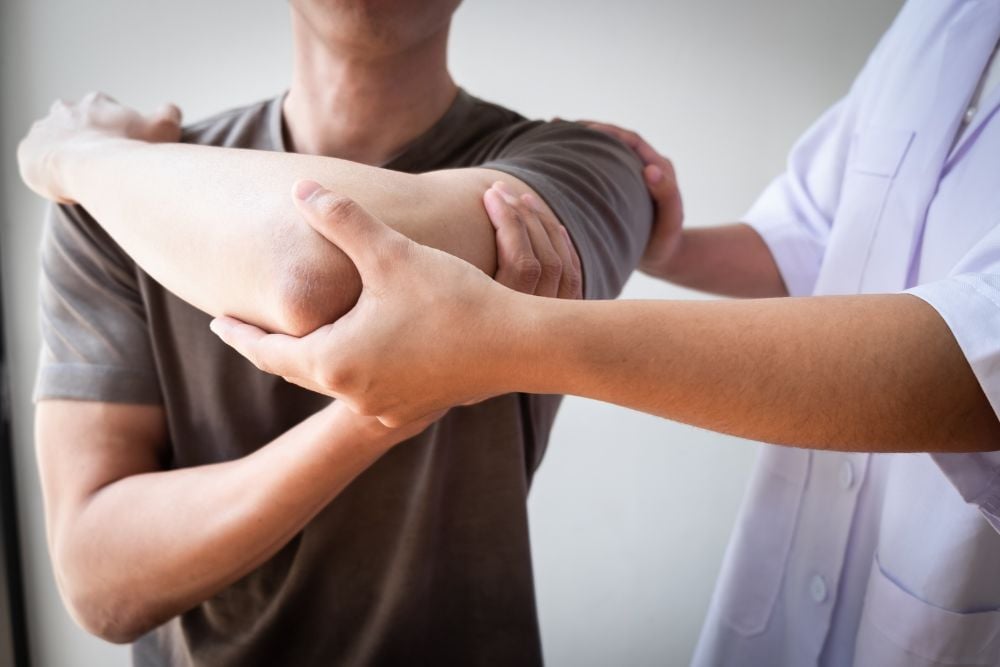Rotator Cuff Tear Treatment: What Are My Options?
April 24th, 2025OrthoHC
A rotator cuff tear is a common shoulder injury that occurs when one or more of the tendons in the rotator cuff — a group of muscles that stabilize and move your shoulder — become damaged or detached from the bone. This can happen suddenly from a fall or lifting something heavy, or gradually over time due to wear and tear. The result is often shoulder pain, weakness, limited range of motion, and difficulty with everyday activities like reaching overhead or sleeping on your side.
If you've been diagnosed with a rotator cuff tear, you're likely exploring the best treatment path to relieve pain and restore shoulder function. At The Orthopedic Health Center, we prioritize personalized care, offering both non-surgical and surgical options tailored to your needs.
Non-Surgical Treatment Options
For many patients, especially those with partial tears, non-surgical treatments can effectively alleviate symptoms and improve function.
Physical Therapy
A cornerstone of non-surgical management is physical therapy, which focuses on:
- Strengthening shoulder and scapular muscles
- Enhancing flexibility and range of motion
- Improving posture and biomechanics
If you choose this route, a physical therapist will create an exercise plan tailored to your needs and stage of recovery.
Pain Management
To manage discomfort, options may include:
- NSAIDs: Medications like ibuprofen or naproxen reduce inflammation and pain.
- Ice and Heat Therapy: Applying ice packs can decrease swelling, while heat helps relax tight muscles.
- Corticosteroid Injections: In cases of persistent pain, your doctor may recommend a corticosteroid injection. This anti-inflammatory treatment can help reduce swelling and relieve pain in the short term, especially if symptoms are interfering with daily activities or physical therapy progress.
Surgical Treatment Options
Surgery may be recommended for full-thickness tears, severe pain, or cases where non-surgical options haven’t provided relief. The type of surgery chosen for rotator tears will depend on several factors, such as your anatomy and the nature of your injury. The most common procedure is arthroscopic rotator cuff repair, which uses small incisions and a camera to guide the repair of torn tendons.
Benefits of surgical treatment include:
- Improved strength and range of motion
- Reduced long-term pain
- Lower risk of further tearing
Rehabilitation and Return to Activity
Whether you choose non-surgical or surgical treatment, rehabilitation plays a crucial role in healing and restoring shoulder function. Non-surgical treatments support a gradual return to daily activities, often within 6 to 12 weeks. Surgical treatment is typically followed by 4 to 6 weeks of rest with your arm in a sling. Once your surgeon clears you for movement, a physical therapist will guide you through a progressive exercise plan to restore motion and strength. Full recovery can take several months, depending on the severity of the tear and your personal recovery goals.
Partnering with The Orthopedic Health Center
At The Orthopedic Health Center, our experienced team is dedicated to guiding you through every step of your recovery journey. Whether you opt for non-surgical management or require surgical intervention, we tailor treatment plans to your specific needs and goals.
For more information or to schedule a consultation, contact us today.
Appointments available now.
